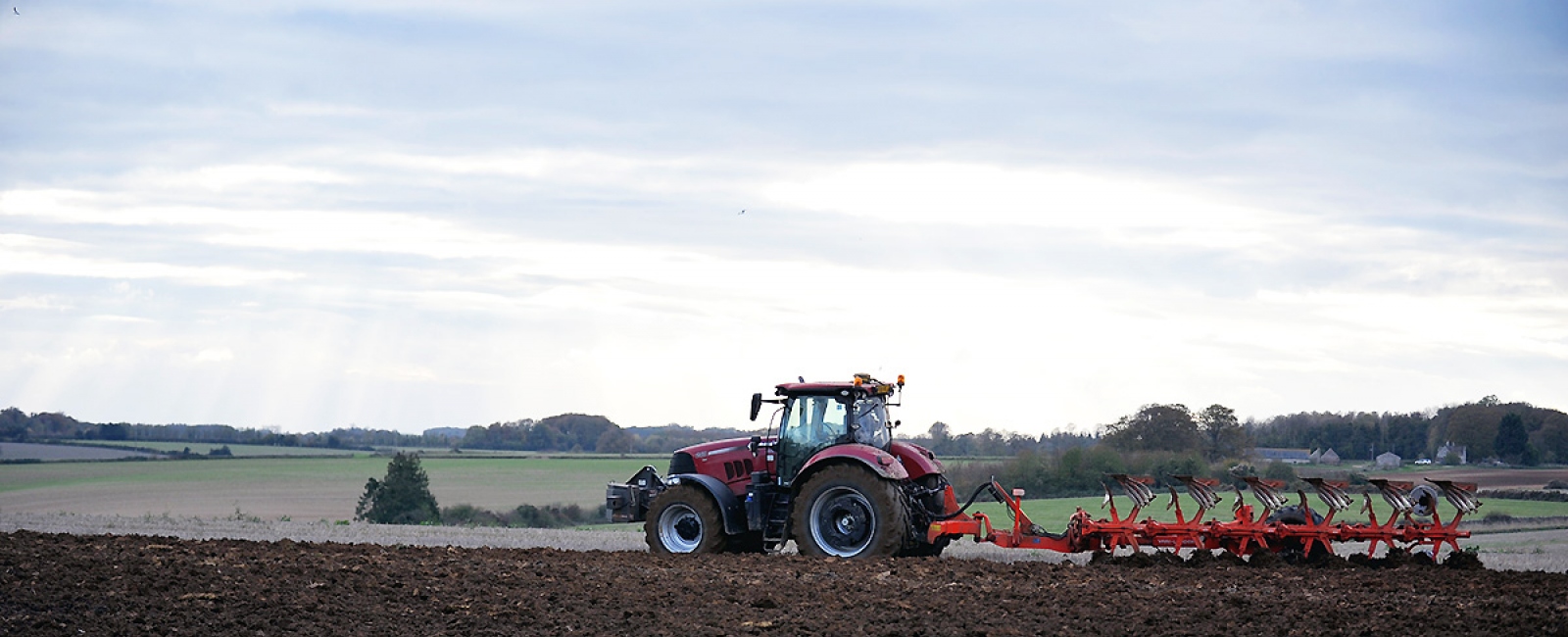FdSc Agriculture and Farm Management
Whether you wish to manage an agri-food or farming business, continue studying agriculture and land management or work in another aspect of the extensive agri-food industry, this course will give you the practical, business and leadership skills you need.
Course overview
You will cover topics such as accounts and economics, animal and crop science, crop production, and farm business management. Right from your first year you will gain an understanding of the agricultural industry, with focused practical studies. You will advance even further with work experience during the summer between your first and second year. You will also have the opportunity to gain relevant practical experience and qualifications through rural skills training.
After successfully completing the Foundation Degree you may wish to consider enrolling for additional year of study on the BSc (Hons) Agri-Management (Top-up) to obtain an Honours degree.
Work placement
You will complete a 10-week period of work experience, usually during the summer between your first and second year, to gain further training and experience in farm management. Not only could you find yourself working for prestigious companies, you will be developing your confidence and gaining industry contacts for when you graduate.
This experience helps our graduates develop key employability skills and gain invaluable industry contacts.
Course content
You will be assessed through a wide range of techniques, including research projects, examinations, case studies, business plans, portfolio, presentations and practical skills.
You can also enrol for courses leading to the award of Certificate of Competence.
Timetables
Please note that while we make every effort to ensure that timetables are as student-friendly as possible, scheduled teaching can take place on any day of the week. Wednesday afternoons are normally reserved for sports and societies activities.
Modules
The programme is based on six modules, worth 20 credits each, per academic year. Each credit equates to about 10 hours of study time. Total study time includes scheduled teaching, independent study and assessment activity.
Full-time students normally take modules worth 60 credits per 15 week semester but this can vary depending on your elective choice. Part-time students taking proportionally fewer credits per semester. All students take a total of 120 credits per level and 240 credits for the foundation degree as a whole. The overall grade for your foundation degree is based on marks obtained for modules taken at level 4 and level 5 (weighted 30:70) accordingly.
The modules available for this degree are shown below. They may change for your year of study as we regularly review our module offerings to ensure they’re informed by the latest research and teaching methods.
Year one
- 4M002 Professional, Practical and Study Skills: This module develops academic, employability, and practical skills for success in university and land-based careers. It includes reflective writing, data handling, digital literacy, and hands-on tasks relevant to the sector. Students explore sustainability, industry challenges, and professional development. Assessment includes a skills portfolio, a 1000-word reflective account, and a group presentation on a sustainability challenge. The module supports self-awareness, technical competence, and a sustainable mindset.
- 4A007 Applied Agricultural Science: This module introduces core biological principles in plant and animal science, focusing on nutrition, genetics, health, welfare, and crop management. Topics include anatomy, physiology, pest and disease control, and sustainable agronomy. Students engage in seminars, lab and field practicals. Assessment includes a 10-minute group presentation, two 1-hour online multiple-choice tests (animal and plant science), and a laboratory identification test. The module supports critical evaluation of biological systems and their application in agricultural practice.
- 4A002 Farm Business Finance and Accounts: This module introduces financial and economic principles in farm business management. Topics include enterprise analysis, gross margins, profit and loss, balance sheets, cashflow, and agricultural market dynamics. Students explore planning, budgeting, and decision-making tools through case studies and practical tasks. Assessment includes a 1500-word portfolio and a 2000-word business plan. The module supports critical evaluation of financial performance, resource appraisal, and sustainable business planning in agricultural contexts.
- 4A003 Agricultural Machinery and Technology and Buildings: This module explores the role of machinery, infrastructure, and emerging technologies in modern agriculture. Topics include power systems, cultivation equipment, livestock technologies, automation, and farm safety. Students engage with field trips and seminars to evaluate machinery performance and sustainability. Assessment includes a 30-minute online multiple-choice test, a 1500-word crop-specific report, and a 1500-word livestock-specific report. The module supports critical evaluation of mechanisation, innovation, and infrastructure in land-based systems.
- 4A004 Soil Science and Ecosystem Services: This module explores soil health and ecosystem services within agroecosystems and natural environments. Topics include soil formation, hydrology, ecology, chemistry, and biodiversity net gain. Students engage in lab and fieldwork, mapping, and case study visits. Assessment includes a 1500-word report with calculations and a 2-hour open book exam. The module supports critical evaluation of soil properties, environmental cycles, and the role of natural capital in supporting human wellbeing and sustainable land management.
- 4A005 Farming Systems and Sustainability: This module examines diverse farming systems including arable, livestock, mixed, organic, regenerative, and agroecological approaches. Topics include climate change, soil and water management, urban agriculture, and future farming scenarios. Students engage with farm visits, guest speakers, and case studies. Assessment includes a 10-minute recorded presentation and a 2500-word case study-based report. The module supports critical evaluation of sustainability challenges, system transitions, and agroecological practices across global and UK agricultural contexts.
Year two
- 5A001 Agronomy: This module explores crop production in temperate climates, covering cereals, legumes, oilseeds, root crops, and grasslands. Topics include variety selection, crop establishment, nutrition, protection, and sustainability. Students engage with farm visits and industry-led seminars. Assessment includes a 1-hour online test, a 5-minute podcast, and a 1500-word crop growth blueprint. The module supports critical evaluation of agronomic decisions, crop improvement, and sustainable production systems.
- 5A002 Livestock Husbandry: This module examines sustainable livestock management across ruminant and monogastric species. Topics include breeding, feeding, welfare, and environmental impact. Students engage with field trips, case studies, and industry tools. Assessment includes a 10-minute individual presentation and a 2500-word feeding plan. The module supports critical evaluation of husbandry systems, genetic strategies, and nutrition planning for health, performance, and sustainability.
- 5A003 Farm Business Planning and Food Supply Chains: This module introduces farm budgeting, financial planning, and supply chain dynamics. Topics include gross margins, cash flow, benchmarking, and food system integration. Students explore local and global supply chains and policy frameworks. Assessment includes two 2000-word reports: one on farm business planning and one on food supply chain strategy. The module supports critical evaluation of farm economics, resource use, and food security.
- 5A004 Land, Property and Woodland Management: This module explores diversified farm assets including buildings, tenancies, planning, taxation, and woodland management. Topics include land occupation, estate objectives, timber value, and agroforestry. Students engage with site visits and case studies. Assessment includes a 2000-word diversification report and a 2000-word woodland management plan. The module supports critical evaluation of land use, property performance, and sustainable woodland strategies.
- 5A005 Agricultural Commodities Marketing and Data Handling: This module examines commodity markets, pricing, risk management, and data analysis. Topics include international trade, futures, hedging, and statistical tools. Students develop Excel and data interpretation skills. Assessment includes a 1000-word research paper, a 1500-word professional report, and a 1000-word essay. The module supports critical evaluation of market dynamics, decision-making, and evidence-based reporting in agri-food contexts.
- 5A006 Agriculture and Food Policy: This module investigates agri-food policy from UK and global perspectives. Topics include food strategy, assurance schemes, activism, and public goods. Students reflect on work-based learning and policy debates. Assessment includes a 6-slide presentation, a skills portfolio, a 500-word academic poster, and a 1000-word essay. The module supports critical evaluation of policy development, stakeholder influence, and career-relevant skills.
Disclaimer information
The University has established various rules and regulations that you must agree to and follow if you accept an offer to study with us. View our full disclaimer notice.
Careers and graduate destinations
- Farm manager
- Agricultural trader / supplier
- Agricultural insurer
- Journalist
- Research consultant / advisor
"I knew I wanted to progress into the agricultural sector in a professional capacity and develop my knowledge. This is why I chose the RAU; the connections, skills and support to explore areas of interest gave me confidence to succeed."
Mhairi Lochhead, Graduate
Entry requirements
Typical offers
Required: GCSE minimum five GCSEs at Grade C/4 including English Language and Mathematics (or Maths Numeracy for Welsh applicants) plus satisfactory level 3 qualifications:
- A-Level: (example grades CD) – minimum of 56 UCAS tariff points (applicants should have either two A-levels or one A-level and two AS level subjects or equivalent qualifications)
- C&G Advanced Technical/BTEC - Level 3 Extended Diploma (1080) at Merit-Pass-Pass
- International Baccalaureate: 24 points
- Access to Higher Education: 45 credits at level 3 of which minimum of 15 must be awarded at Merit or higher. (Pass in Functional Skills level 2 are accepted in lieu of GCSE English & Mathematics)
Other level 3 qualifications will be considered.
Visit the UCAS website to calculate your UCAS Tariff points from the qualifications and grades achieved.
Flexible entry
The University welcomes interest from applicants who may not have the standard entry requirements. A wide range of qualifications and experience are accepted in order to join University degree programmes. The University always considers evidence of personal, professional (APL) and educational experience, (APEL), which show an ability to meet the demands of their intended programme of study.
Further information
Alternative entry routes are available for a range of other qualifications. Prior experience is also considered, subject to approval by the programme manager and admissions staff.
Read more general information about our entry requirements.
International students will also need to achieve IELTS Academic or equivalent at the appropriate level for your programme of study. English language requirements for international students.
For any further help, please contact our admissions team:
- Email: admissions@rau.ac.uk
- Telephone: +44 (0)1285 889912
Fees
2026-27 Applicants
For the academic year 2026-27 the tuition fees for this course are:
| UK | International | |
|---|---|---|
| Full-time | £9,790 per year | £16,950 per year |
For part-time study, please contact admissions@rau.ac.uk for further information.
Please also refer to the funding your time at university page.
Tuition fees may be subject to an inflationary increase each year as set out in our Access and Participation Plan and are subject to Government and regulatory body conditions.
If you are an Irish national you can check if you meet the requirements for Home Fees. Please visit the UKCISA website and consult the pdf guide “England HE – who pays Home Fees”. First check category ‘3 years in Republic of Ireland/UK/Islands, settled in UK’ or ‘Brexit temporary offer for courses starting before 2028: Irish citizens with residence in Europe or overseas territories’. You will possibly need to be fee assessed when you submit an application for study to the RAU.
Scholarships
The University offers a wide range of generous fee waivers and bursaries. To find out more about the these, please visit the bursaries, awards and scholarships page.
Ready to take the plunge? Apply now
Applications should be made by the UCAS deadline to ensure we are able to offer you a place on your first choice course. However, if you have missed the deadline please contact Admissions@rau.ac.uk as there are usually places available.
If you would like to apply during UCAS Extra or Clearing, please check that we have places available.
Applicants wishing to study on a course on a part-time basis will need to apply directly to the RAU.
Please contact admissions@rau.ac.uk to discuss your requirements and obtain an application form.



